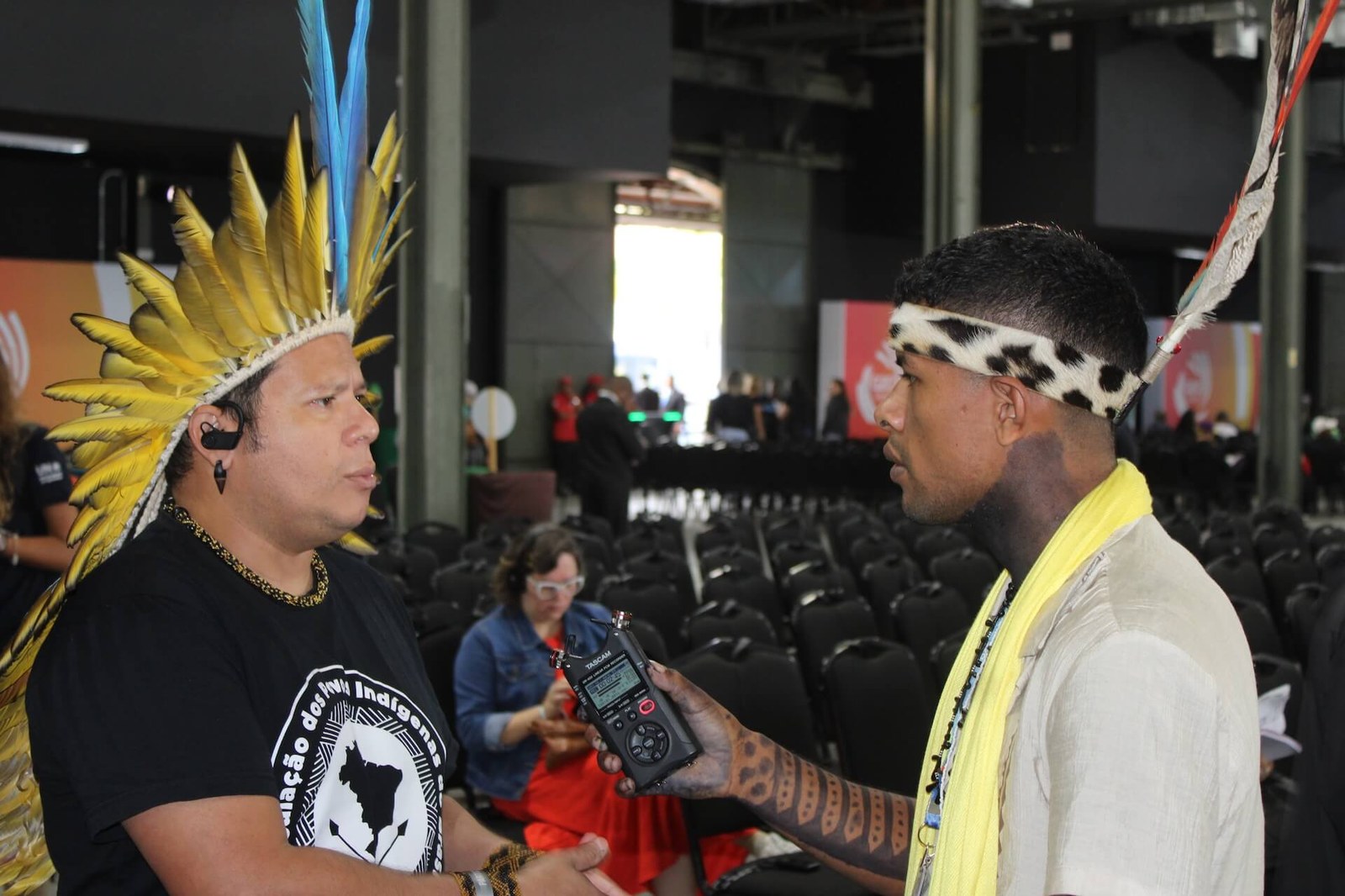Ancestral views guide the vision of the future in the G20 Social
The presence of representatives of Indigenous social movements brought the territory issue to the center of the debate, reinforcing the need for environmental justice to be built through social participation.

Does the defense of the territory also gain space in the policies that propose a future more guided by sustainability and environmental justice? This question appeared in several ways during the G20 Social Summit, in spaces occupied by Indigenous social movements, as participants in the event, or even as speakers, as witnessed in the Plenary "Sustainability, Climate Change and Just Transition."
The assembly was attended by Paulo Teixeira, Minister of Agrarian Development and Family Farming, and João Paulo Capobianco, Executive Secretary of the Ministry of Environment and Climate Change, who joined international names such as Laurence Tubiana, economist, diplomat, and chief negotiator of the Paris agreement; Adriana Marcolino, representative of the Brazilian civil society from DIEESE, and Marciele Tupari, coordinator of the Secretariat for The Brasil’s Indigenous People Articulation (APIB). Marciele's presence brought essential tension to the proposed debate.
Marciele highlighted in her speech what she defined as “hypocrisy” on the part of political authorities that talk about ending deforestation in the north of the country but continue to pursue plans to extract oil at the mouth of the Amazon or insist on investing in fossil fuels. “The government insists on the creation of funds, they create promises, but the actions do not reach the ground of the territory,” she said.
APIB general coordinator Kleber Karipuna also echoed the request from the audience: environmental justice needs to start with what we face on our lands. The Brazilian people cannot label the demarcation of lands as our exclusive agenda as peoples that claim this place (although it is a struggle for rights that should be everyone's responsibility); but our demarcation should be the starting point of a strategy to fight the climate crisis.
“We need to participate in global movements to bring the demands of our reality and the pain we are feeling in the territories to get it here to the great global leaders. But here, we are also helping to bring what's in the climate COP into the spaces of the G20 social,” he noted.
The climate crisis exacerbates existing human rights inequalities, falling with particular intensity on Indigenous peoples, ancestral guardians of the forest. It is a crisis of systems: here, we have a line of capitalist development in which the world needs to be tattooed by large constructions, which generated inequality and unsustainability.
From this perspective, as an Indigenous communicator and activist, a descendant of the first ancestors of this land, the message I leave here is: The Future of Brasil is Ancestral. Remember that the forest spirits have already echoed many warning messages through the Native Peoples, and you have not heard us. I began the report with a question, and I end it with another: how long will we allow profit and power to blind our ability to act for a dignified future for everyone and for the planet?"
Uhnepa Inu Vake produced this text for collaborative coverage of the G20 Social. This content was produced during the educommunicative coverage of the G20 Social, carried out by "Viração Educomunicação" and by young participants of RENAJOC (National Network of Adolescent and Young Communicators). A production of "Viração Educomunicação" with support from the Friedrich Ebert Foundation in Brasil.
*Translated by PGET-UFSC